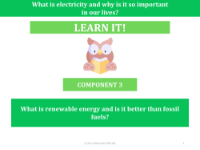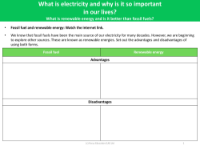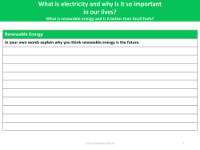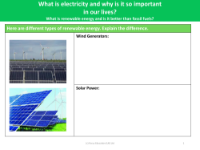What is renewable energy and is it better than fossil fuels? - Teacher notes
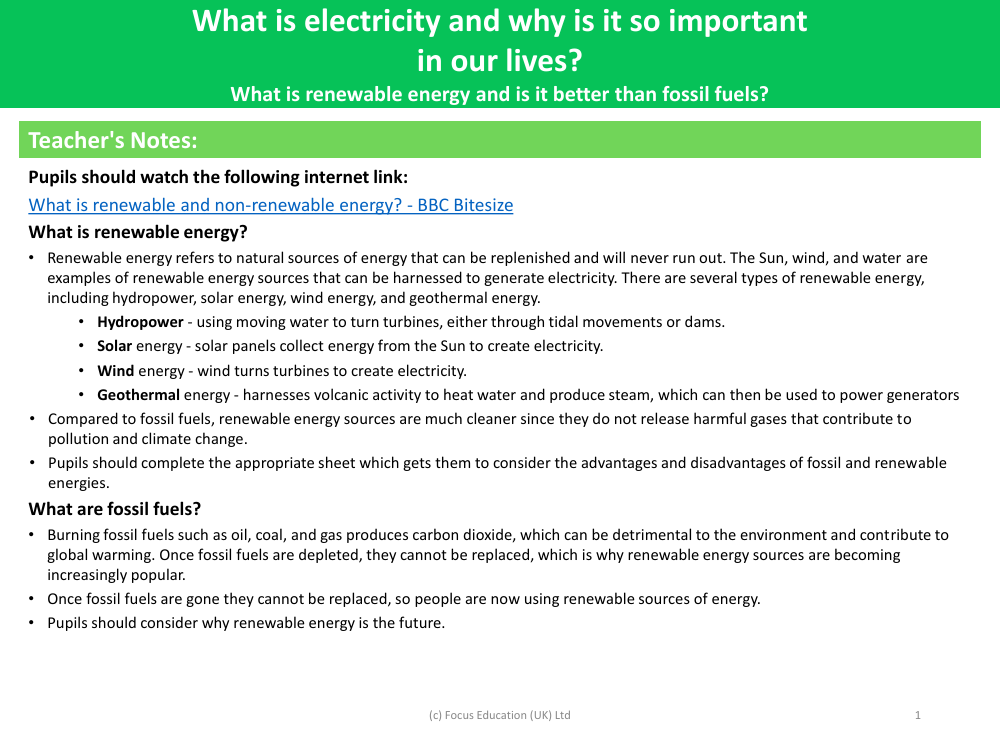
Science Resource Description
Renewable energy encompasses sources of power that are abundant in nature and can be replenished, ensuring a sustainable supply that won't run out. This category includes the Sun, wind, and water, which can all be harnessed to produce electricity. There are various forms of renewable energy, such as hydropower, which generates electricity using the movement of water via tides or dams; solar energy, which involves solar panels capturing sunlight; wind energy, where wind propels turbines to create power; and geothermal energy, which exploits volcanic activity to heat water and produce steam for powering generators. These renewable sources are considered to be far cleaner alternatives to fossil fuels because they do not emit harmful gases that contribute to pollution and climate change.
Fossil fuels, including oil, coal, and gas, are traditional energy sources that release carbon dioxide when burned, negatively impacting the environment and accelerating global warming. Unlike renewable sources, fossil fuels are finite and cannot be replenished once exhausted. This finite nature and environmental impact are driving the shift towards renewable energy, which is seen as the future of energy production. Pupils are encouraged to explore the advantages and disadvantages of both fossil and renewable energies, understanding why the transition to renewable sources is crucial for sustainable development and environmental conservation.

